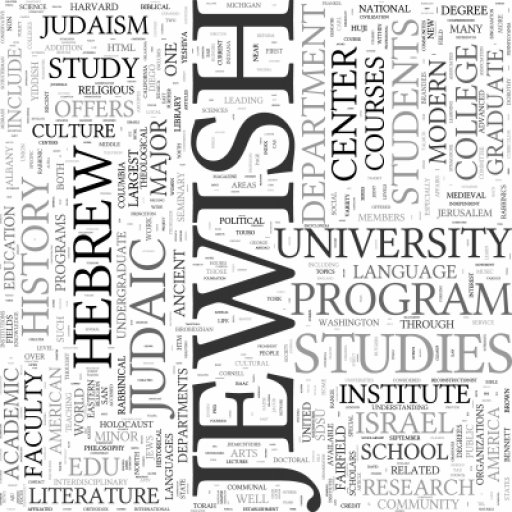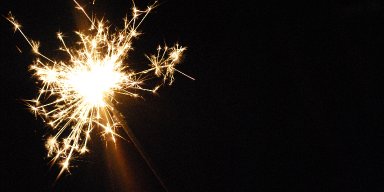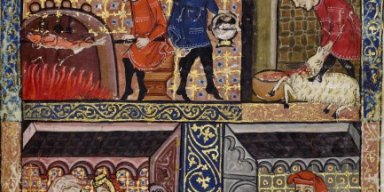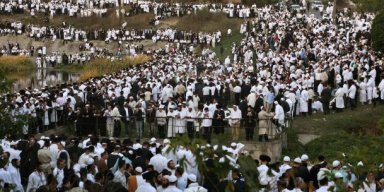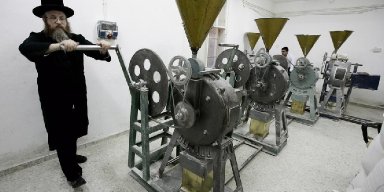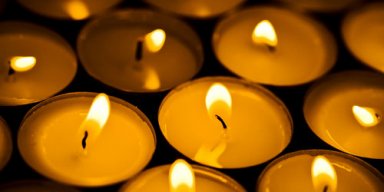The section of Talmud which I brought in part 2 could be the basis of hundreds of books. Let's look at some of the themes, and their Biblical backgrounds. We tend to lump things together, that aren't necessarily connected; or are they? In the Torah itself, as I have stated, there are only veiled "hints" of the idea of Mashiach. In Jacob's blessing to his sons, he says of Judah "the sceptre shall not depart from Judah...until Shiloh comes". (Genesis 49:10). Who, or what, is Shiloh? We know that it is a place about 20 miles north of Jerusalem. But is the verse speaking of a place...or a person? Furthermore, the word "Shiloh" can also be understood as a variant of "shelo" (his), thus rendering the verse "until he to whom it (the scepter) belongs shall come". It is thus rendered in the ancient Targumim (Jewish Aramaic translations of the Torah) as well as most modern Christian versions. We tend to read into that the idea of Mashiach, but the verse is actually quite enigmatic. If it DOES mean the Mashiach, all we can learn from it is that he will be a powerful ruler. The other Torah reference (possibly) is to be found in the words of the wicked sorcerer Bilaam.(Nuimbers 24):
17I see him, but not now;
I behold him, but not near:
a star shall come out of Jacob,
and a scepter shall rise out of Israel;
it shall crush the foreheads of Moab
and break down all the sons of Sheth.
18Edom shall be dispossessed;
Seir also, his enemies, shall be dispossessed.
Israel is doing valiantly.
19And one from Jacob shall exercise dominion
and destroy the survivors of cities!”
Again, the prophecy is of a military leader, who will bring death and destruction upon the Nations. Israel will rule the world! But no where is the word "Messiah" mentioned here. Nevertheless, a downtrodden people could see in this verse a future reversal of their portion. But nowhere do we see here a promise of light, love and spiritual redemption, which we generally associate with a Messiah. Interestingly, "A star from Jacob" inspired a second century rebel against Roman rule, Rabbi Akiva was certain that this was the long awaited Mashiach. He gave him the name "Bar Kochba" (son of a star). One of R. Akiva;s colleagues said to him however "Akiva, grass will grow from your cheeks, and the Son of David will not yet have come". How could Rabbi Akiva make such a mistake? This will be discussed in a future installment.
Contrary to this, we have in the Prophets, especially Isaiah, a vision of a great and wise leader, who will bring peace and spirituality not only to Israel, but to the entire world. Can these visions be reconciled? And what of the prophets who talk about the "Day of the L-rd" in horrifying terms? (Amos 5)
18 Woe to you who long
for the day of the Lord!
Why do you long for the day of the Lord?
That day will be darkness, not light.
19 It will be as though a man fled from a lion
only to meet a bear,
as though he entered his house
and rested his hand on the wall
only to have a snake bite him.
20 Will not the day of the Lord be darkness, not light—
pitch-dark, without a ray of brightness?
21 “I hate, I despise your religious festivals;
your assemblies are a stench to me.
22 Even though you bring me burnt offerings and grain offerings,
I will not accept them.
Though you bring choice fellowship offerings,
I will have no regard for them.
23 Away with the noise of your songs!
I will not listen to the music of your harps.
Are these sources speaking of the same event? We can easily see in the Talmudic passages from Sanhedrin that some of the rabbis yearned for Mashiach, while others dreaded his arrival. Can we put all of this together? Stay tuned.
17I see him, but not now;
I behold him, but not near:
a star shall come out of Jacob,
and a scepter shall rise out of Israel;
it shall crush the foreheads of Moab
and break down all the sons of Sheth.
18Edom shall be dispossessed;
Seir also, his enemies, shall be dispossessed.
Israel is doing valiantly.
19And one from Jacob shall exercise dominion
and destroy the survivors of cities!”
Again, the prophecy is of a military leader, who will bring death and destruction upon the Nations. Israel will rule the world! But no where is the word "Messiah" mentioned here. Nevertheless, a downtrodden people could see in this verse a future reversal of their portion. But nowhere do we see here a promise of light, love and spiritual redemption, which we generally associate with a Messiah. Interestingly, "A star from Jacob" inspired a second century rebel against Roman rule, Rabbi Akiva was certain that this was the long awaited Mashiach. He gave him the name "Bar Kochba" (son of a star). One of R. Akiva;s colleagues said to him however "Akiva, grass will grow from your cheeks, and the Son of David will not yet have come". How could Rabbi Akiva make such a mistake? This will be discussed in a future installment.
Contrary to this, we have in the Prophets, especially Isaiah, a vision of a great and wise leader, who will bring peace and spirituality not only to Israel, but to the entire world. Can these visions be reconciled? And what of the prophets who talk about the "Day of the L-rd" in horrifying terms? (Amos 5)
18 Woe to you who long
for the day of the Lord!
Why do you long for the day of the Lord?
That day will be darkness, not light.
19 It will be as though a man fled from a lion
only to meet a bear,
as though he entered his house
and rested his hand on the wall
only to have a snake bite him.
20 Will not the day of the Lord be darkness, not light—
pitch-dark, without a ray of brightness?
21 “I hate, I despise your religious festivals;
your assemblies are a stench to me.
22 Even though you bring me burnt offerings and grain offerings,
I will not accept them.
Though you bring choice fellowship offerings,
I will have no regard for them.
23 Away with the noise of your songs!
I will not listen to the music of your harps.
Are these sources speaking of the same event? We can easily see in the Talmudic passages from Sanhedrin that some of the rabbis yearned for Mashiach, while others dreaded his arrival. Can we put all of this together? Stay tuned.



